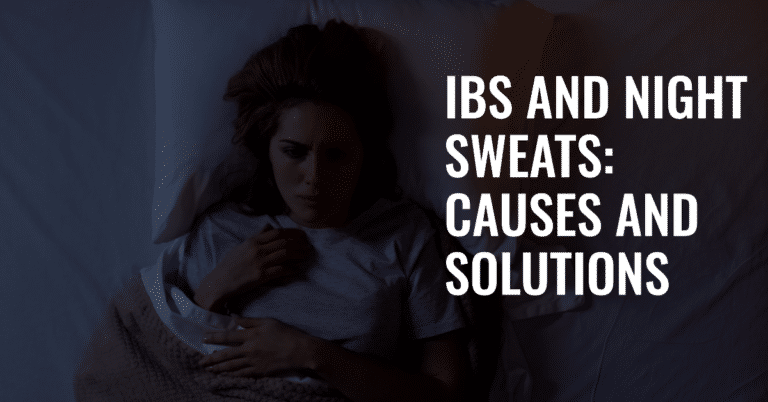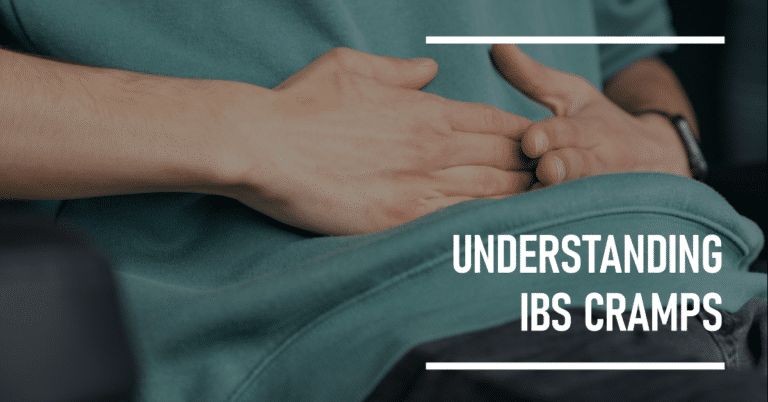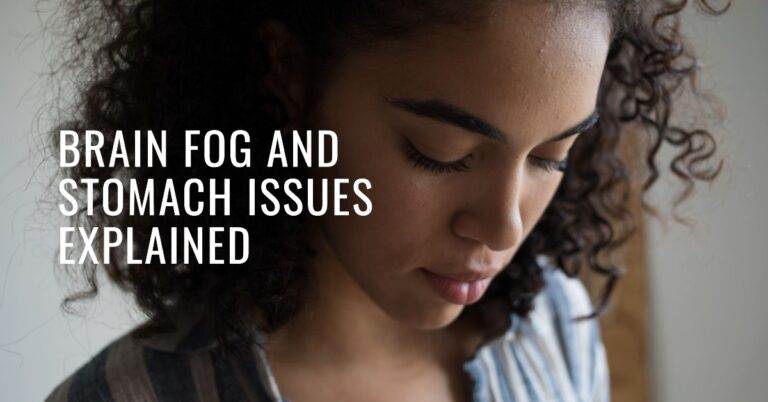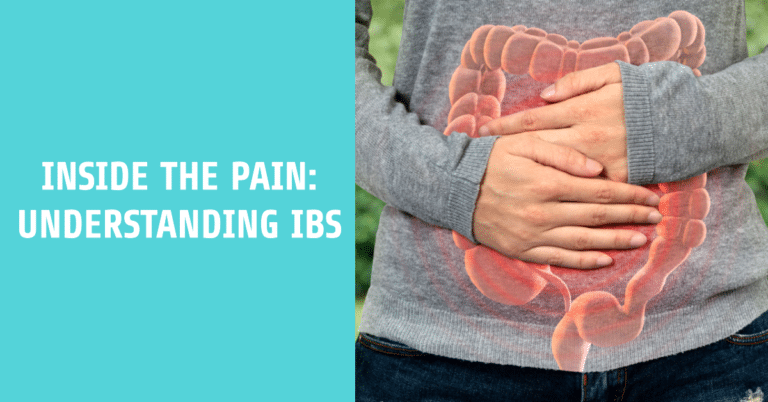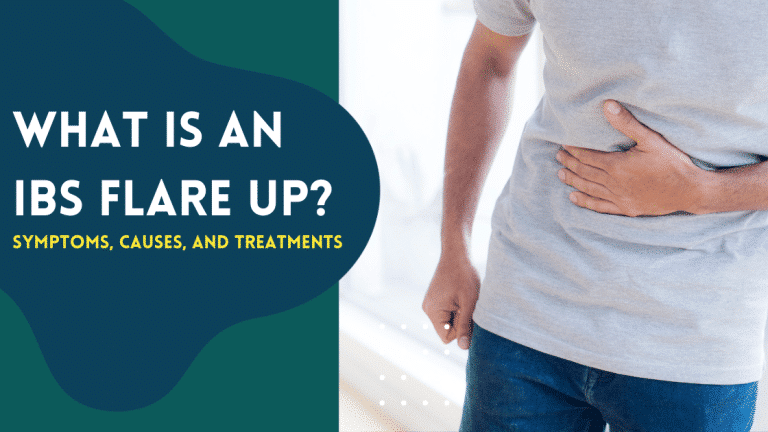Can IBS Cause Back Pain? – Why Irritable Bowel Syndrome Causes Aching
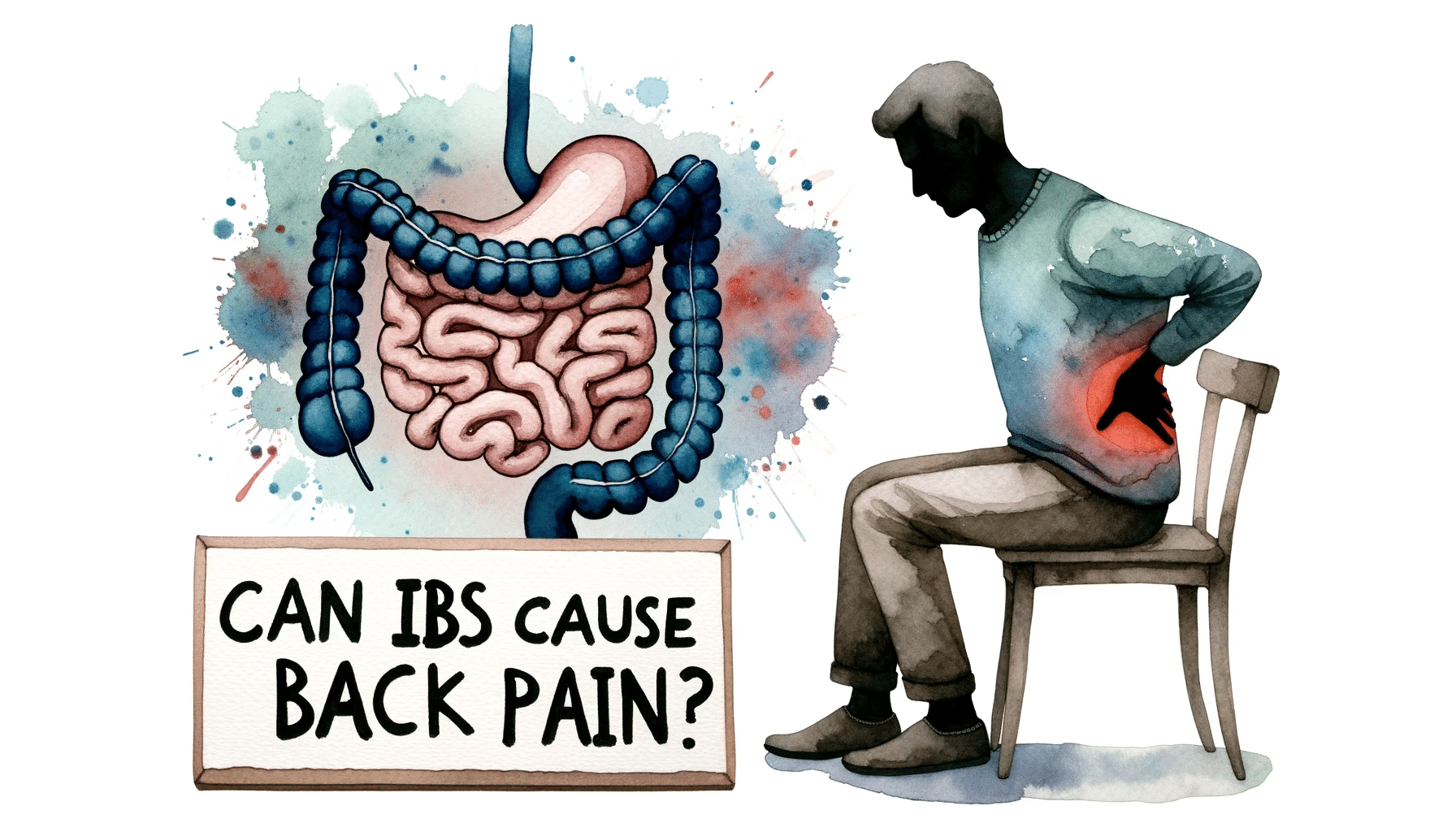
Imagine a life where even the slightest twinge of discomfort in your lower back could be attributed to more than just a pulled muscle.
Welcome to the enigmatic world of irritable bowel syndrome (IBS), where the lines between gut and back pain often blur.
If you’re seeking answers on whether IBS is the undercover culprit behind your back pain, you’re in for an intriguing revelation.
So, let’s dive right in!
Struggling with symptoms? – check out my comprehensive guide to the best supplements for IBS and find relief now!
Can IBS Cause Back Pain, Really?
In a nutshell: yes, indeed! Brace yourself as we embark on an exploratory journey into the symbiotic relationship between IBS and back pain.
Picture this: between 28% and 81% of people dealing with IBS report experiencing back pain.
That’s not just a random figure – it’s the actual range! Now, that’s quite a statistic, don’t you think?
Back Pain and IBS: A Dynamic Duo?
Before you roll your eyes at the notion of IBS being the sneakiest back pain accomplice, let’s dissect the mechanics of this curious partnership.
When it comes to IBS, the symptoms extend far beyond the realm of stomach troubles.
Lower back pain, often shrouded in mystery and discomfort, emerges as a notable player.
And guess what? It sometimes prefers to make its grand entrance during the wee hours of the night.
No, it’s not an after-party guest – it’s IBS making its presence known in the most unexpected way.
The Enigma of Referred Pain
Prepare to be mystified: IBS’s connection to back pain lies in the realm of “referred pain.”
In simpler terms, it’s the sort of pain that manifests somewhere other than its origin point.
Imagine a secret agent transmitting coded messages across borders. In this case, the gut sends discomfort signals to your back, thanks to the intricate network of nerves interconnecting these regions.
This could mean that your nightly backache might actually be an unanticipated gift from your gut.
The Spasms and Struggles
Hold onto your curiosity hats, because we’re about to delve into the nitty-gritty of how IBS and back pain intertwine.
Whether you’re dealing with the diarrhea-prone, the constipation-challenged, or the mix-and-match IBS types, one thing remains consistent: the potential for back pain.
Those seemingly mysterious spasms you feel in different corners of your large intestine?
They might be the masterminds behind your backache.
Symptoms that Bridge the Gap: Decoding IBS and Back Pain
Think of your body as a symphony orchestra, each instrument playing a distinct tune.
Similarly, IBS comes with its own set of instruments – symptoms, if you will – that can create harmonies with back pain.
Feeling a bit bloated? Experiencing those telltale gut gurgles? These seemingly unrelated cues might just be the preamble to your lower back discomfort.
The “Why” Behind the Pain
Let’s address the burning question: why does IBS, a digestive conundrum, have such an affinity for causing back pain?
The answer lies in the interconnectedness of your body’s systems. When your gut goes awry – whether it’s constipation or gas putting on a show – the intricate web of nerves doesn’t hesitate to pass the memo along to your back.
It’s almost like your body’s internal communication system is on a relay race – but with discomfort instead of batons.
Discomfort in the Details
Now, let’s dive into the specifics. The pain that IBS ushers to your back isn’t just any pain.
It’s often a product of spasms taking place within different sections of your large intestine.
Picture this: a series of contractions and relaxations, almost like a rhythmic dance, occurring in areas where you’d least expect them.
These spasms have a mischievous way of creating a sensation that travels, finding its ultimate expression in your lower back.
Conquering Symptoms of IBS – From Diagnosis to Decision
As you navigate the labyrinthine connection between IBS and back pain, you might be wondering: what now?
The journey involves recognizing the signs, seeking professional advice, and embarking on a path towards effective management.
Remember, battling IBS symptoms requires a holistic approach that considers both your digestive well-being and your back’s comfort.
Easing the Ache: Navigating the Landscape of IBS and Back Pain Treatment
You’ve learned that there’s an intricate link between IBS and back pain.
Now, it’s time to explore the pathways that lead to relief – looking into the forms of treatment at your disposal.
So, let’s navigate through the options and find the keys to alleviating your discomfort.
A Multifaceted Approach
When it comes to tackling the intertwined duo of IBS and back pain, a multi-pronged strategy is key. From conventional medical methods to holistic remedies, the arsenal is vast and versatile.
One prominent avenue is through therapy. No, we’re not discussing a talk show – we’re talking about therapies that focus on calming the storms within your digestive tract.
Techniques like relaxation techniques and mindfulness practices like Nerva for IBS might just hold the power to soothe both your gut and your back.
Unraveling the Inflammatory Web
Inflammation is like the not-so-welcome guest at the party – it tends to stir up trouble. However, this party-crasher can be managed.
Some treatments for IBS revolve around taming inflammation, such as the low-FODMAP diet.
While followed strictly under the guidance of a qualified dietician, this can potentially ease not only gut issues but also the back pain that comes with it.
Unveiling Treatment for IBS
If you’re navigating the world of IBS and the accompanying back pain, you’re not alone. Various treatment options await your consideration.
These range from dietary modifications and lifestyle adjustments to seeking professional guidance from a trusted gastroenterologist.
They’re not just the experts on stomach troubles – they’re your allies in deciphering the intricate link between your gut and your back.
The Probiotic Paradigm
Ever heard of the term “probiotic”? It’s like a tiny superhero for your gut.
These friendly bacteria might just hold the key to not only easing digestive turmoil but also calming the storm of back pain.
Research suggests that incorporating probiotics into your routine could bring about positive changes in both IBS symptoms and associated discomfort.
Getting Rid of IBS Back Pain: Final Thoughts
As we’ve explored the link between irritable bowel syndrome (IBS) and back pain, we’ve journeyed through symptoms, treatments, and insights.
Here are the key takeaways that can guide you on your path to getting your symptoms under control.
Decoding Symptoms
Picture symptoms as pieces of a puzzle forming a unique picture for each person. Abdominal pain, stomach discomfort, and changes in bowel movements could all hint at the onset of back pain.
The connection between IBS and back pain isn’t always straightforward – it’s more like a dance with subtle cues.
Navigating Treatment
Treatment options vary from dietary changes to therapies, creating a diverse toolkit. However, what works for one may not be a universal solution.
Finding your best fit requires patience and a willingness to adapt. It’s a journey of trial and learning.
IBD’s Role
Just as shifts in bowel movements might signal IBS, they could also point to IBD, otherwise known as inflammatory bowel disease.
Consulting a medical professional is vital for accurate assessment and guidance.
Empowerment Through Education
Knowledge is your ally in this journey. Learning about the interaction between IBS and back pain empowers you to make informed choices.
So don’t be afraid to be curious, ask questions, and take an active role in managing your well-being.
Acknowledging Worsening
Facing reality, there are times when IBS symptoms worsen. Pain intensifies, discomfort deepens, and back pain becomes more prominent.
During these phases, seeking professional guidance is crucial. Your well-being thrives on collaboration between you, healthcare providers, and your resilience.
As we conclude this exploration, remember that your journey continues. Armed with insights and understanding, you’re better equipped to navigate the unique dance of IBS and back pain.
Let these insights be your guideposts, leading you toward a future where well-being takes center stage. Stay curious, stay empowered, and embrace the path ahead.
Disclaimer: This content is based on my personal experience as an individual diagnosed with celiac disease and IBS (Irritable Bowel Syndrome) who follows a strict gluten-free diet. This does not constitute medical advice. Please consult a medical professional, nutritionist, or qualified dietitian for personalized, professional advice.

